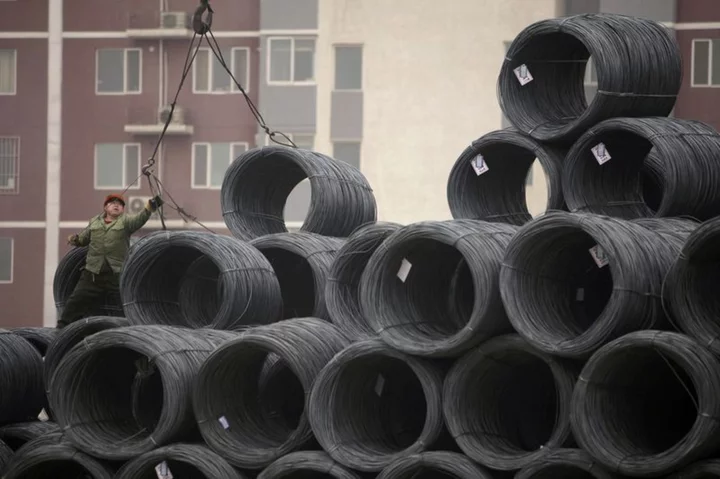The Swiss, feeling the impact of global warming on their rapidly melting glaciers, were voting on Sunday on a new climate bill aimed at steering the country towards carbon neutrality by 2050.
Recent opinion polls indicate strong support for the proposed law, which would require Switzerland to slash its dependence on imported oil and gas, scaling up the development and use of greener and more homegrown alternatives.
But the backing slipped in the most recent survey by pollster gfs.bern, albeit remaining at 63 percent in favour, amid an anxiety-infused campaign around electricity shortages and economic ruin driven by the populist right-wing Swiss People's Party (SVP).
Polling stations opened in most places at 10:00 am (0800 GMT) and were set to close at noon.
But most ballots are typically cast in advance for popular votes held under Switzerland's direct democratic system, and initial results were expected by mid-afternoon.
Supporters say the proposed "Federal Act on Climate Protection Targets, Innovation and Strengthening Energy Security" is needed to ensure energy security.
They say it will also help address the ravages of climate change, highlighted by the dramatic melting of glaciers in the Swiss Alps, which lost a third of their ice volume between 2001 and 2022.
- Climate-friendly alternatives -
Switzerland imports around three quarters of its energy, with all the oil and natural gas consumed coming from abroad.
Climate activists had initially wanted to push for a total ban on all oil and gas consumption in Switzerland by 2050.
But the government balked at the so-called Glacier Initiative, drawing up a counter-proposal that scrapped the idea of a ban but included other elements.
The text promises financial support of two billion Swiss francs ($2.2 billion) over a decade to promote the replacement of gas or oil heating systems with climate-friendly alternatives, as well as aid to push businesses towards green innovation.
Nearly all of Switzerland's major parties support the bill, except the SVP -- the country's largest party -- which triggered the referendum against what it dismisses as the "electricity-wasting law".
The SVP says the bill's goal of achieving climate neutrality in just over a quarter-century would effectively mean a fossil fuel ban, which it claims would threaten energy access and send household electricity bills soaring.
SVP leader Marco Chiesa last month criticised the "utopian" vision behind the bill, maintaining it would drive up energy costs by 400 billion Swiss francs while having basically "no impact" on the global climate.
The World Meteorological Organization (WMO) said in April the melting of the Alpine glaciers would have an economic impact in both the short term -- such as natural disasters and a loss of tourism revenue -- and in the longer term, as they supply rivers and hydroelectric power plants.
- Corporate tax hike -
In 2021, the SVP successfully lobbied against a law that would have curbed greenhouse gas emissions.
But observers say it will be harder for it to convince people of its message this time.
There is a growing push for Switzerland to reduce its reliance on foreign energy sources since Russia's invasion of Ukraine threw into doubt Swiss access to much of the foreign energy it uses.
Also on the ballot on Sunday will be a referendum on whether to hike the tax rate for large businesses.
The government wants to amend the constitution so Switzerland can join an international agreement, led by the Organisation for Economic Cooperation and Development (OECD), to introduce a global minimum tax rate of 15 percent for multinational corporations.
The latest opinion poll indicated that 73 percent of Swiss voters backed the plan, which would impose the new rate on all Swiss-based companies with a turnover above 750 million euros.
Until now, many of Switzerland's 26 cantons have imposed some of the lowest corporate tax rates in the world, in what they often said was needed to attract businesses in the face of high wages and location costs.
The Swiss government estimates that revenues from the supplementary tax would amount to between 1.0 and 2.5 billion Swiss francs in the first year alone.
nl/vog/imm









